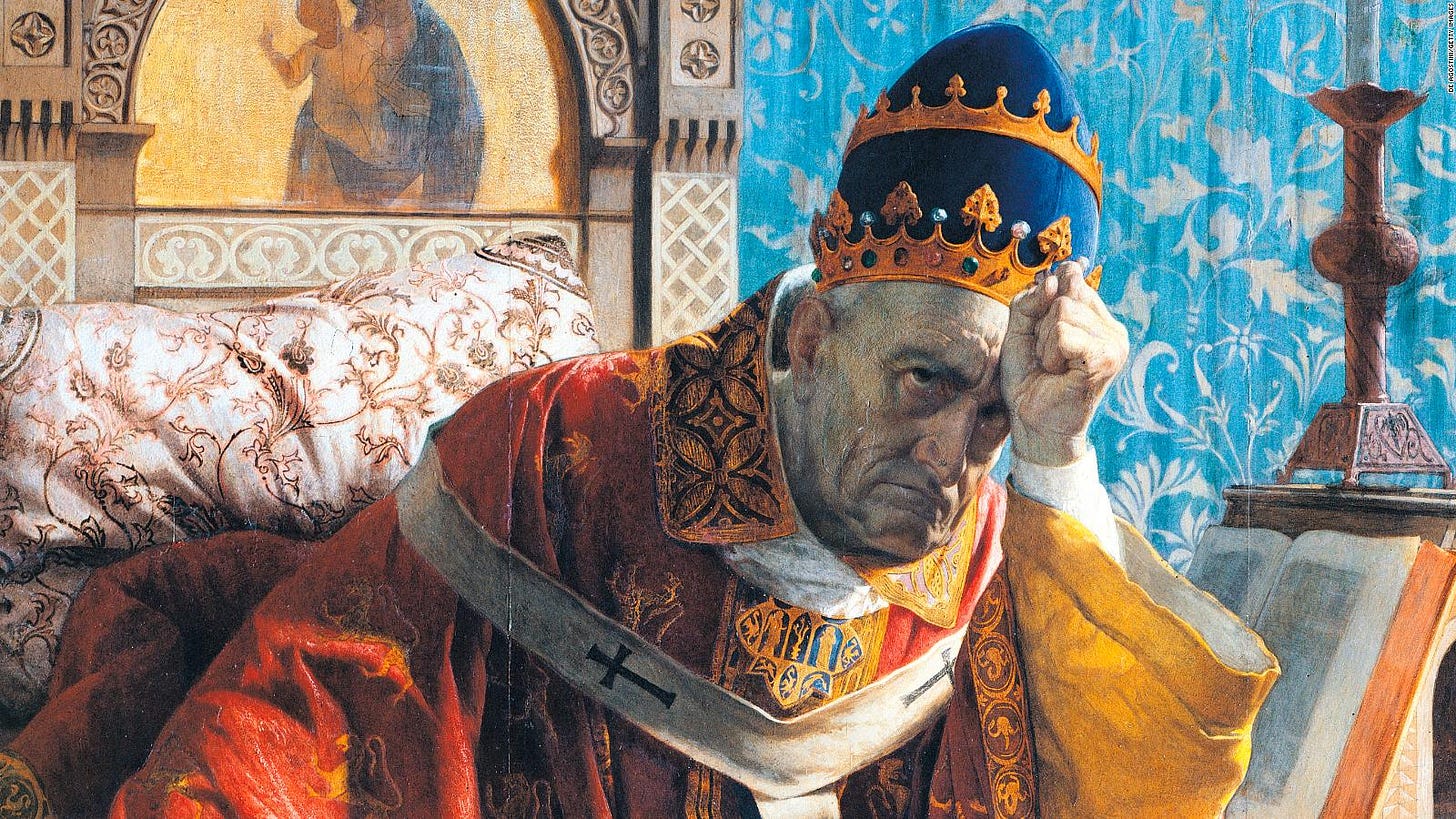The next section in Musculus’ Loci: “What is dewe to the Magistrate of the subiects.” All standard Romans 13 stuff with typical applications of the period. Then Musculus asks “whether that ecclesiastical persons ought to be accounted emongst subiects,” a more heated inquiry for the period.
Simple answer: “See that euery soule be subiect unto the superior powers” even as unto “God himself,” “So that as longe as there is soule or lyfe left in our flesh, so longe we be bounde by the ordinaeunce of God, to yelde subiection an dobedience unto the Magistrate.” The clericalist, papist opinion that Musculus seeks to combat is that ecclesiastical officers are exempted from the rule of laymen and so also from this principle. Musculus confront this opinion with similar clarity. The Apostle did not provide a clerical exemption, nor did he distinguish between spiritual and carnal (i.e., clergy and lay) in this way. Until the carnal life is transcended in death, or the clergy can “proue themselues to be so meare spirites” or that “thei haue no more to do with this carnal life,” such that they have “nothing to geue unto Cesar,” then they are still souls and comprehended by the command.
Musculus calls it “wickedness” that “the Clergie haue not only withdrawen, but preferred themselues also aboue the Magistrates, which haue the uery gouernance in deede.” This occasions Musculus’ attack on mid-to-late medieval papal “two swords” theory wherein both powers were originally lodged in the church, one for her to wield and the other for her to delegate for her own protection. Musculus has no time for this.
Certainly, “we must so much and plainelier confesse, that the spiritual power doth passe all earthly power in worthynes and nobilities, the more that spiritual things doe excelle and goe by yonde temporall matters.”
That said,
“who perceiueth not how uain an imagination this is of the two swords. They geue both of them unto Peter, both the temporal and the spirituall sworde, whereas he had but one, and not two.… and they doe gether upon this place: that the two sowrdes, the spiritual and the temporall, do appertaine unto the Pope, as successor unto Peter… whereas they doe allege out of Paule, that the powers been orderly appointed of God, so the one sworde is under the other sworde, the temporall sworde under the spirituall sworde, [but] it is not Paules minde nor meaning. For he did not use the worde of Ordaining to this sence, but absolutely to the sence of appoyting. Those power that be, be appointed by God… Can thei thereupon gather a right, that Magistrates be subiect unto Byshops [?]”
As stated, Musculus means the later two swords theory then in vogue and evidently takes a very literal interpretation of the Garden of Gethsemane even if he derives archetypal examples therefrom.
For the idea of an unaccountable clergy, that the “The spirituall person iudgeth all things, and he is iudged of no other man,” and that this supposition appertained to the pope in particular, Musculus has no patience. After a lengthy discourse on the Council of Nicaea and the role of Constantine vis a vis the bishop of Rome, he argues for the validity of synods and councils over papacy (i.e., Roman supremacy).
Most in view, however, is the assertion from the clericists that they are exempted from temporal laws and sanctions, and that their accountability extended only so far as canon law, their judges only bishops. Musculus reminds the reader that the “constitutions” of Justinian permitted clergy to be judged in ecclesiastical offenses by bishops, in equitable or civil disputes by bishops before temporal authorities weighed in, and that clergy should not be exempted from secular punishment for criminal acts. Nor were clergy freed from the authority of the emperor himself. Musculus suggests further that these exemptions were practical measures designed to prevent clergy from being “entangled with litigiouse” matters and be “withdrawn from their duties.” Justinian also wanted crimes of heresy to be punished more directly and severely within the church than without. Hence, the disparity of treatment went both ways. What the late emperor certainly did not contemplate was that “the priuileages which he granted to the clergie, should serue to the licentiouse libertie of al kinde of mischief, wickednes, and ungodlynes” and that these should be “exempted from the iudgements of magistrates.” From Musculus’ vantage point, this is exactly what the papacy had lapsed into. “The priuilege is loste, bycause of the abuses thereof.”
All the more reason for the magistrate to exercise jurisdiction over them, for the sake of the church. After all, “thei do appertaine unto the iurisdiction of them of whom thei haue receaued privileges.” How else could the privileges and immunities to which they clung be “ratified and assured”?




